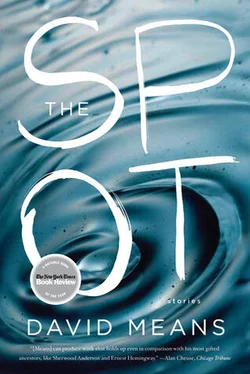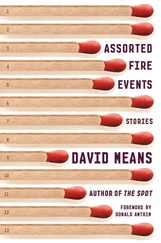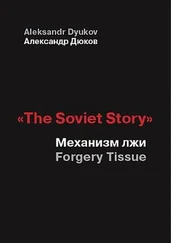One more textbook case of discard and loss, another suicide fished out of the waters. Bodies were pushed to the bottom initially — for a few minutes — and then, unless snagged on the rocks below, they bobbed up and twirled around, unable to catch the outflow, which made it easy for the man named Kit Wilson, who took his Zodiac out with the collecting nets, to catch hold of her body and draw it up against the hull. Another slipper, he thought. Another foolish tourist who got too close. Another drunkard unable to resist the lure of danger. Another kid who went in too deep and couldn’t get out of the rage. Another American testing the edge. (Canadians rarely went over.) Another girl skinny-dipping with her boyfriend, swimming too far out into the tangle of currents, taking the long trip down with plenty of time to think over her life and to consider the mistakes she’d made in one form or another. Maybe she simply couldn’t live up to the expectations that life had, and decided that this was the best way to go, majestic and grand, united with the great drive of the water that had been coming over this escarpment for a million years (with the exception of that wonderful time, years ago, when just a trickle came over the scarred jawbone of rock while the rest of the mighty river was surprised to find itself diverted through the power-plant intake pipes). It seemed that at least once a year the same girl came over the falls to give him a bit role in the large drama that would culminate when the news crews showed up and asked him to speak. His Canuck voice would be clear and exact: We don’t know where she came from. No idea why she did it. The falls aren’t something to fool with. And, No, I don’t get used to pulling them out like this.
He fished her out and saw that she was maybe fourteen or fifteen, with a thin, malformed rump, tiny arms, and a bruised face, cut along her brow, from which stared a pair of mute blue eyes. Her lips were pulled back in a grimace, exposing a gap between her two front teeth. Looking down at the body, flexing along with the hull, he got a hint of her story. (Later he’d hear her name, Meg Allen, and learn that her history could be traced back as far as a hotel in Cleveland, where she had murdered a seed dealer from a place called Mansfield, and then a bit farther back, to a hell-on-earth childhood in Akron.) Whatever produced these bodies with regularity would go on, he thought. If there was a way to stop it, it had long ago been forgotten. He held the tiller and got the motor going full throttle and watched as the wake dug surprisingly straight and clean out of the torment. He loved the feel of the boat when its stern cut deep and, in turn, the bow lifted toward the sky, slapping over the waves. He loved the way the wake spread itself out — even in the foam and rage — and how, when he was past the wash-up, as they called it, the water gathered itself into order and smoothed quickly, as if eager to be done with all the noise and to get back to a more settled existence on the way down to the whirlpool, where it would spin mindlessly for a few minutes before being released into the relative calm of the river as it headed toward the merciful breadth of Lake Ontario.
He was a thirty-five-year-old part-time student at Union Seminary. In four years he would be the minister of a church up the Hudson, in a place called Sneden’s Landing. But at this time he was working for an interdenominational insurance organization in an office building on Claremont Avenue, just off Broadway. The view from his window was spectacular, stretching all the way up to the George Washington Bridge and the Palisades beyond. When the carillon played in the tower of Riverside Church, across the street — the individuated notes of the bells smearing together by the time they reached him — he sometimes felt its vibrations, spreading his fingers out against the glass.
She commuted in from a town thirty miles up the river and worked two floors down as an insurance adjuster. Steeples that have toppled in storms, she explained. You know, church fires and the like. Midwestern churches are always burning, being rebuilt, and then burning again. I think of church fires as a kind of civic right of passage. You know, bucket brigades passing hand-to-hand. Then there are lawsuits, of course, elderly slips and so on. You’d be surprised at how often people stumble during Communion. But this is not really what I do. I’m a voice coach by training.
Adultery is multifaceted, he said. It’s shapeless but at the same time has a rudimentary figure, like a snowflake; an abundance of clichés surround it and yet it’s unique, an entity different each time. Over the window in his bedroom was a grate secured with a large padlock. The sun came through the grate and then the embroidered curtains he brought back from Spain, spreading a lattice across her body that he traced with his fingers, from her belly — with its cesarean scar — to her chin.
There was the inelegance of it, too, of course, and the requisite lies that must be told, and the foolishness they felt when alone: his feeling of desertion when she was up at her house along the river. He went down near the water, to walk the length of Riverside Park, to breathe the creosote and salt air, and to look at the edge of the Palisades beyond the bridge.
The superstructure that held the subway where it emerged from the tunnel at Broadway and 125th Street. The brutal way the trains heaved to a stop, out of sight but not out of earshot — the clandestine sensation of secreting some part of his life away.
They made love in his apartment most afternoons, one way or another, during lunch.

I don’t care about this job. I’m a part-timer. I’m not obligated to this career, he said.
We provide fine insurance for religious institutions under the umbrella, but otherwise we’re just another business; we weigh the risk factors — and she stopped herself here because it was easy, she found, to fall into a mindless prattle about the nature of the insurance business, about the ways risks were covered. This subject, along with the embroidered curtains, made her think of the time in Spain, with her husband, when they had gone up onto the mesa for dinner with a British couple, a man who worked for Lloyd’s of London. She remembered something seminal about that night; they had felt so young, so fresh, so keenly American. They drank a punch made of Pimm’s and talked about life. Then there had been — and here she was somewhat fuzzy on the details — an insinuation about group sex? A hint at some form of experimentation? It was never clear. They’d excused themselves, gone to the car, driven down the road into Carboneras, laughing and excited, cutting straight through the town. The street busy, jammed with people, she had sensed the carrying of a secret agreement, of something deep and unspoken.
The night when the circumstances were correct — her daughter was on a sleepover with a friend, her husband away on business — they took a cab through the park to the East Side for dinner, roaring through the trees, the redolent smell of the earth, passing the old horse stables, to emerge into a larger order, the stateliness of Park Avenue.
The rattle of the emerging subway, salsa music from gypsy cabs — if he listened, when she woke him to make love again, he heard these sounds coalesce and deteriorate into nothingness: the quaint, paradoxical dynamic of knowing and not knowing. She’d become acutely aware of this sensation much later, when she moved back to the city and was living near Park Avenue, looking down at the traffic.
The great sorrow of being part of the overall tradition, for lack of a better phrase: knowing that Chekhov had it right. They read “The Lady with the Pet Dog” together, in the grass in the park, lying on a blanket, while across the street, near Grant’s Tomb, a boy lifted a pit bull up by a stick to strengthen its jaw.
Читать дальше













